49 years ago today, Frampton Comes Alive! was released in the US to critical acclaim. As arguably the most famous live album ever made, the versions it contains of Frampton’s singles ‘Do You Feel Like We Do’ and ‘Baby, I Love Your Way’ monopolized radio airtime such that many people have never even heard the studio recordings. Along with ‘Show Me The Way’ all three were released as singles off the live record, and all three reached the top 15 on the US Billboard Hot 100. READ a bit more about this famous album… (1976)

Frampton Comes Alive! was voted Album of the Year in a 1976 Rolling Stone readers’ poll. It stayed on the chart for 97 weeks and was still No. 14 on Billboard’s 1977 year-end album chart. It achieved peak position on the US, Canadian, Australian, and Portuguese charts, eventually being certified 8x platinum.
Recordings from four shows were used for the original album, most of which was recorded between June and November 1975, primarily at the Winterland Ballroom in San Francisco and Marin Veterans Memorial Auditorium.
MORE Good News on this Date:
- Book One of Don Quixote by Miguel de Cervantes was published in Madrid telling the story of an insane nobleman that sets out to revive chivalry, undo wrongs, and bring justice to the world under the name Don Quixote, with farmer Sancho Panza, as his squire (1605)
- Superman was first published as a daily newspaper comic strip (1939)
- The Cavern Club opened in Liverpool, and later became home to the Beatles who appeared at the club 292 times (1957)
- Two manned Soviet Soyuz spaceships became the first vehicles to dock in space and transfer personnel (1969)
- Buckminster Fuller was awarded the Gold Medal from the American Institute of Architects (1970)
- El Salvador signed a pact with rebel leaders ending 12 years of civil war that had killed at 75,000 people (1992)
- Romanian university lecturer and novelist Adriana Iliescu gave birth at age 66, the oldest woman ever to do so (2005)
- Nepal declared January 16 to be a public holiday to celebrate the country overcoming a decade of conflict with Maoist rebels, who now work together with women and working-class representatives within an elected parliament (2007)
46 years ago today, Life on Earth debuted on BBC 2. Its gravitas at the time for British television has a parallel in our time to the hugely successful Planet Earth, and not only set out the BBC as the premier producer of nature documentaries, but the host, a certain David Attenborough, was catapulted into stardom that sees him still today maintain top billing for narrative jobs in the documentary space at the age of 93.
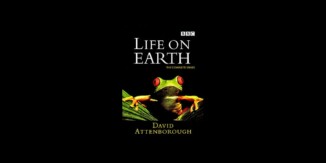
At a cost exceeding £1 million ($1.2 million), it was an immense project that involved filming over 100 locations around the world and took three years in the making by a team of 30 people with the help of more than 500 scientists. The series attracted a weighted average of 15 million viewers in the UK, an exceptionally high figure for a BBC documentary back in the late 1970s. It was also a major international success, being sold to over 100 territories and watched by an estimated audience of 500 million people worldwide.
In it, Attenborough travels around the world looking at different animals that encapsulate the story of the evolution of life on Earth, starting with the oldest fossilized animals known at the time—from the Flinders range in Australia.
Each episode features a chapter in the evolution of animal and plant life, such as hard-shelled bodies, gills, and aquatic adaptations, before going on to wings, fur, intelligence, etc. (1979)
117 years ago today, President Theodore Roosevelt established Pinnacles National Monument in California. Pinnacles is part of the Neenach Volcano which erupted 23 million years ago near present-day Lancaster. The Pacific plate moving westward created the San Andreas Fault, which is thought to be the creation method of the park’s unique rock formations and talus caves.
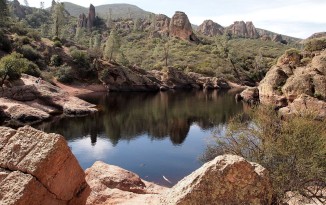
In 1922, following repeated pleas from local residents for Park Service action, W.B. Lewis, superintendent of Yosemite National Park, was directed to visit Pinnacles and report on the circumstances to Park Service director Stephen Mather. Lewis had a difficult trip and stayed only 45 minutes, and his report included a recommendation that the monument be abandoned, since the most scenic sections were in private hands.
Eventually, a precursor to some modern Department of the Interior agencies, the General Land Office, made a thorough report which recommended that public-domain lands be consolidated into the monument, and that a caretaker be appointed from a local homestead. This was done so under Warren G. Harding, before another enlargement by Calvin Coolidge resulted in the park securing campsites and water resources.
Herbert Hoover and Bill Clinton also enlarged Pinnacles National Monument, before legislation authored by Rep. Sam Farr (D-California) to make Pinnacles National Monument a national park passed the United States Senate on December 30, 2012, and the House on July 31, 2012. It was signed into law under Obama in 2013, 105 years after the monument was first created. (1908)
116 years ago today, Sir Ernest Shackleton’s Antarctic expedition arrived at the magnetic South Pole. His 1907-1909 journey there and back won him a knighthood, while establishing a new, Farthest South latitude of 88° 23′ S, a point only 112 miles from the literal South Pole, discovered by Amundsen 2 years later.
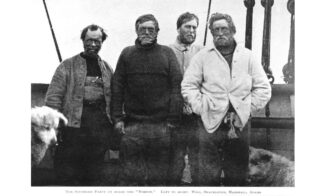
The Irish Anglo Explorer would also become the first man ever to ascend the awe-inspiring Mount Erebus, the most active volcano on the continent, the first man to see the South Polar Plateau, and to cross the Beardmore Glacier Valley, one of the largest in the world. His leadership on the journey ensured his memory would remain even after failed business ventures meant he died in debt, and without actually finding the geographical South Pole, and he was recorded in a 2002 BBC poll as the 11th Greatest Britons.
Arriving in front of the Ross Ice Sheet in January the year before his discovery, Shackleton and his company discovered it was full of hundreds of whales, hence the name the “Bay of Whales”. Reaching McMurdo Sound on the 29th of January to make base camp, the company was in high spirits, mainly due to the communication of County Kildare-born Irish-Anglo captain, Shackleton. Ten months later the group moved for the pole, establishing the magnetic South Pole on January 16th.
Their return journey to McMurdo Sound was a race against starvation, on half-rations for much of the way. In this regard, Shackleton is thought to be in his element, with a 1956 address given by one of his contemporaries noting that when it comes to exploring “when disaster strikes and all hope is gone, get down on your knees and pray for Shackleton.” At one point during the slog back to McMurdo, Shackleton gave his one biscuit allotted for the day to his ailing companion Frank Wild, who wrote in his diary: “All the money that was ever minted would not have bought that biscuit and the remembrance of that sacrifice will never leave me.” (1909)
And on this day in 2006, Ellen Johnson-Sirleaf was sworn in as Liberia’s new president, becoming Africa’s first female elected head of state.
The election of Africa’s “Iron Lady” marked the beginning of the nation’s success story, in the wake of fourteen years of brutal civil conflict. Sirleaf was awarded the 2011 Nobel Peace Prize jointly with two other African women recognized “for their non-violent struggle for the safety of women and for women’s rights to full participation in peace-building work.” Her autobiography, This Child Will Be Great: Memoir of a Remarkable Life by Africa’s First Woman President, tells the tale of her childhood, her experiences with abuse, imprisonment, and exile, and later, her rise to power. She studied in the United States and worked as an international bank executive, but became a social reformer in her homeland who fought the oppression of dictators.
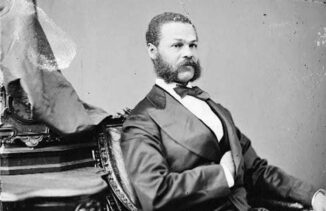
Speaking of black leaders, 154 years ago today, Jefferson Franklin Long was sworn in as the second African American man elected to the U.S. Congress. A Republican from the state of Georgia, he was the first Black member to speak on the floor of the U.S. House of Representatives.
Born a slave in Knoxville, Georgia, Long learned to read and write, defying the law of the day. Trained as a tailor, he opened a successful business in Macon, after his emancipation following the end of the Civil War. He raised seven children with his wife, making sure they all were educated. He was a fine orator and organizer in the Republican party, traveling around the state urging freedmen to register to vote.
According to the U.S. House historians, the majority-White GOP leaders in Long’s state denied him the chance to run for reelection to Congress—and their anti-Black sentiment eventually pushed Long, and many others, to retreat from the party. In fact, it was not until a century later, in 1972, that another Black was elected in Georgia to Congress—Andrew Young.
Jefferson Long lived out the last 20 years of his life self-employed, operating several businesses, including the first dry-cleaning establishment in Macon. (1871)

And, Happy 66th Birthday to singer-songwriter Helen Folasade Adu, also known as Sade, who released one of the best debut albums of all time. Born in Nigeria and raised in Essex, England, she and her band secured a recording deal with Epic Records, releasing Diamond Life in 1984 (Smooth Operator, Your Love Is King). One of the best-selling LPs of the era, her sultry voice and lyrics garnered intense critical acclaim.
The next year, Sade released Promise, another resounding success, which won her a Grammy for Best New Artist. The next two releases, 1988’s Stronger Than Pride and 1992’s Love Deluxe, were also hits. She has also contributed to soundtracks, like Disney’s A Wrinkle In Time, and Widows. Her last studio album in 2010, Soldier of Love, topped the Billboard charts for 3 weeks and earned the band a Grammy.
Like many of us, she spent 2020 in lockdown with her family (in England) rediscovering the joys of cooking—but also writing a lot of music. WATCH a rare interview… (1959)
And, Happy 45th Birthday to composer, playwright, singer, actor, producer, and rap artist Lin-Manuel Miranda. He went to a “school for gifted kids” in New York City—and soon was directing a high school production of West Side Story.

After winning a MacArthur ‘Genius’ Fellowship in 2015, he launched the biggest musical in the last 20 years—Hamilton—which he created, wrote, composed, and starred in. Telling the story of founding father Alexander Hamilton, the show was massively influential and earned the Pulitzer Prize for Drama, the Grammy Award for Best Musical Theater Album, and was nominated for a record-setting 16 Tony Awards, of which it won 11.
Additionally, The Hamilton Mixtape, an LP of song covers from the musical, developed by and featuring Miranda, reached No.1 on the Billboard chart. He starred last year in the HBO show based on a book series called His Dark Materials. Miranda also wrote a ‘Good Morning’ inspirational book.
WATCH him answer the Google auto-fill questions about himself, including how he got his name… (1980)
SHARE the Memories, Milestones, and Music…




















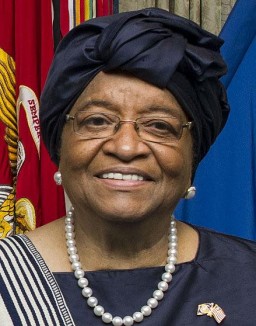
[…] Posted From: https://www.goodnewsnetwork.org/events070116/ […]
[…] Read the full story at https://www.goodnewsnetwork.org […]
[…] post Good News in History, January 16 appeared first on Good News […]
[…] post Good News in History, January 16 appeared first on Good News […]
[…] GoodNewsNetwork After 10 years of being a president what is the feedback? Listen to an BBC […]